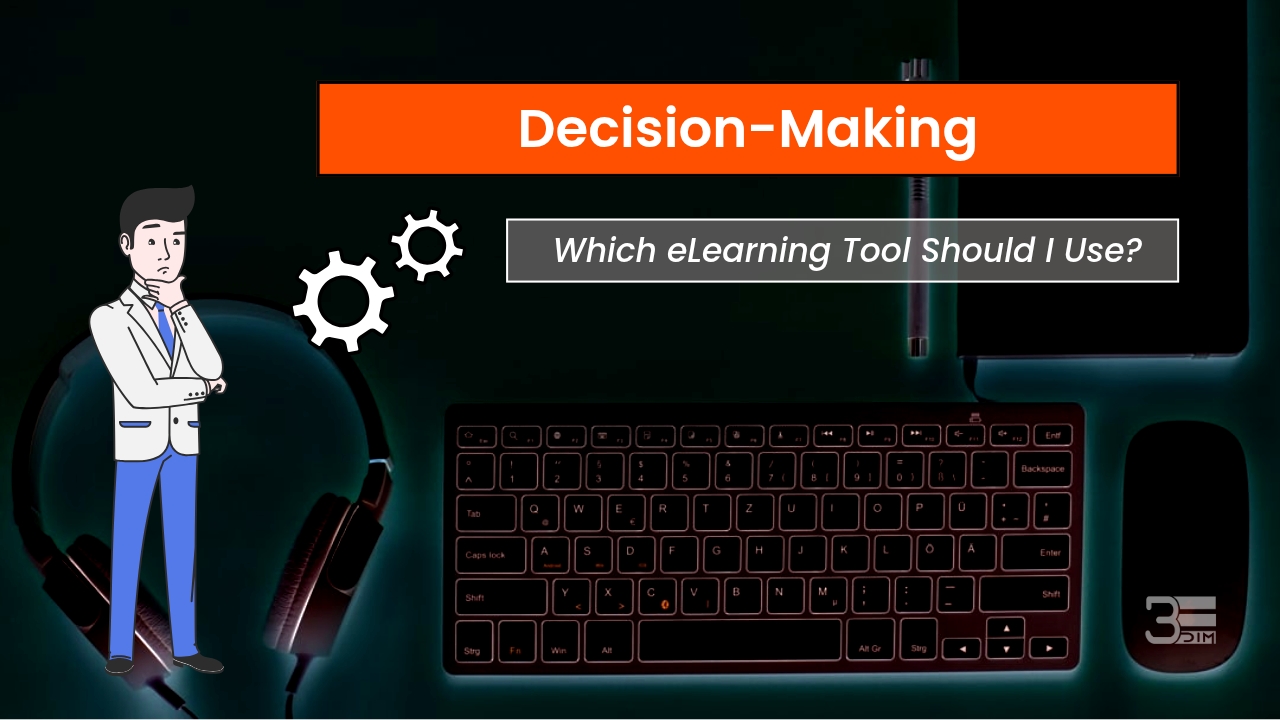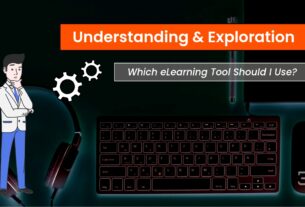Why Choosing the Right Tool Matters:
One of the most impactful goals of eLearning is helping learners become confident decision-makers. With so many tools like branched scenarios, simulations, role-playing modules, and case studies, it can be tricky to choose the best one. That’s why we created this guide: to help you pair each tool with the goal of real-world decision-making, making learning more practical, engaging, and empowering.
This section focuses on a crucial stage in learning: Decision-Making.
What Is Decision-Making in Learning?
Decision-making in eLearning is about giving learners opportunities to analyze information, weigh options, and make choices that mirror real-world consequences. It builds critical thinking, responsibility, and autonomy.
This is especially valuable in areas such as:
-
Business strategy and management
-
Medical or healthcare scenarios
-
Customer service and communication
-
Problem detection and troubleshooting in tech or engineering
-
Ethical reasoning and leadership development
When learners can practice decisions in a safe environment, they become more confident and ready to apply their knowledge in real life.
Recommended Tools for Decision-Making:
🔹 Branched Scenarios & Interactive Videos
Why It Works: Learners make choices at key decision points and experience different outcomes. This helps them foresee the consequences of their decisions in a risk-free space.
Example: A learner navigates a customer support call, choosing responses that lead to different customer satisfaction levels.
🔹 Simulations (Virtual Labs / Business Simulators)
Why It Works: Simulations immerse learners in complex, dynamic environments. They can test decisions over time and see their ripple effects.
Example: A virtual restaurant simulation where learners manage staffing, inventory, and customer flow seeing how decisions impact profits and customer satisfaction.
🔹 Case Studies & Problem-Based Decision Tasks
Why It Works: Real-world scenarios prompt learners to analyze, decide, and justify. This deepens understanding and builds reasoning skills.
Example: Present learners with a business dilemma: Should the company expand overseas? Let them review data and propose a strategy.
🔹 Role-Playing Exercises
Why It Works: Learners assume roles to explore different perspectives and decision paths. This builds empathy and strategic thinking.
Example: In a healthcare module, one student plays a doctor weighing treatment options while another acts as the patient expressing preferences.
🔹 Decision Trees & Flowchart Builders
Why It Works: Visualizing decision paths helps learners think systematically and anticipate outcomes.
Example: Learners construct a flowchart outlining steps for diagnosing a technical issue or selecting a vendor.
🔹 Debate & Discussion Boards
Why It Works: Debate challenges learners to argue and defend a decision, fostering critical evaluation and reasoning.
Example: Learners debate whether artificial intelligence should be regulated presenting arguments and responding to peers.
Decision-making tools transform passive learning into active strategy. Learners move from “just knowing” to “choosing and reflecting.” They gain resilience, adaptability, and insight into real-life problem-solving.
How to Use These Tools Effectively
-
Provide context: Set realistic, compelling scenarios.
-
Allow experimentation: Let learners feel safe to explore different decision paths.
-
Encourage reflection: Ask learners, “Why did you choose that? What would you do differently next time?”
-
Provide feedback: Show consequences of decisions, offer hints, or debrief after exercises.
Decision-making is a critical 21st-century skill, and your eLearning platform should help develop it. Tools like branched scenarios, simulations, and role-playing turn abstract knowledge into impactful choices.
Start by integrating one tool perhaps a branched scenario or simulation into your next module. Watch how learners engage, analyze, and grow.
At 3E Dim, we believe every learner can become a confident decision-maker. With the right tools, you’ll help them navigate, reflect, and thrive.
Explore more in our eLearning Tools section.




